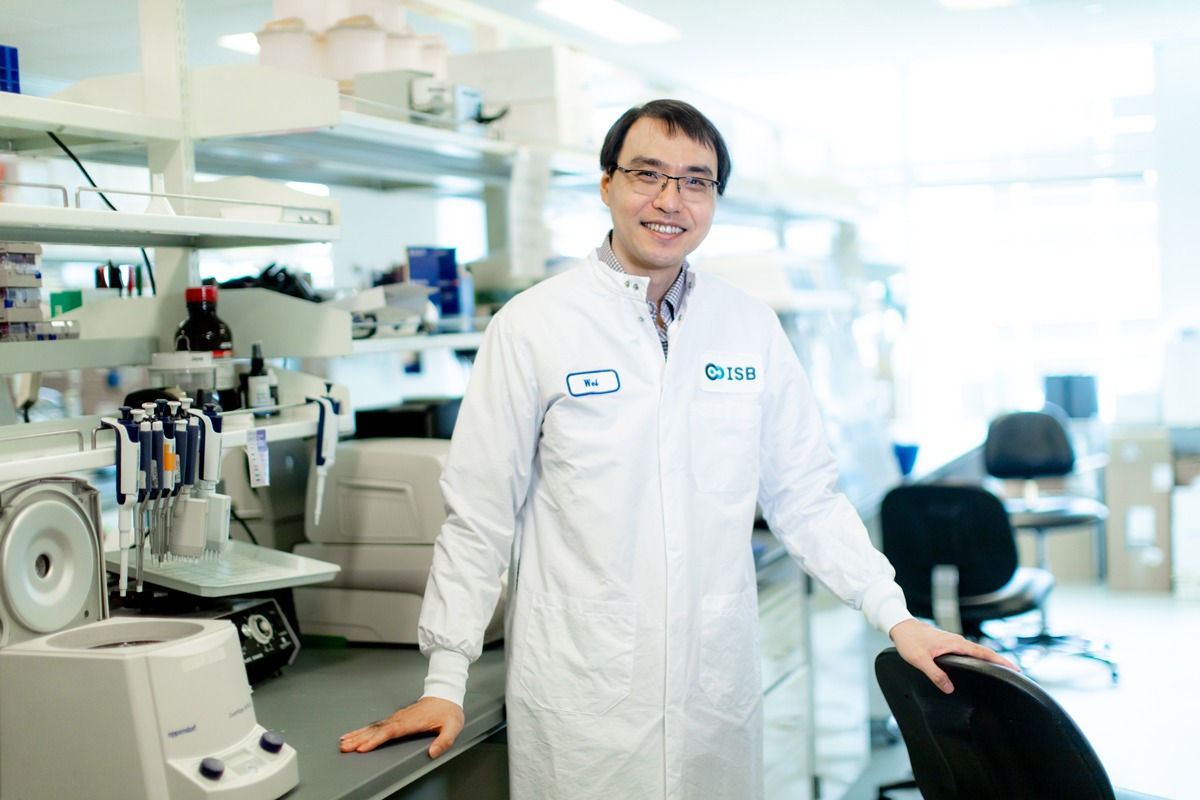Dr. Wei Wei Promoted to Associate Professor
 isbscience.org/news/2024/07/10/dr-wei-wei-promoted-to-associate-professor/
isbscience.org/news/2024/07/10/dr-wei-wei-promoted-to-associate-professor/

Wei Wei, PhD, joined ISB in 2018 as Assistant Professor. He was recently promoted to Associate Professor.
Wei Wei, PhD – an accomplished cancer researcher with expertise in biotechnology and cancer systems biology – has been promoted to ISB associate professor.
Wei joined ISB as an assistant professor in 2018. His lab focuses on understanding how cancer cells adapt to therapeutic treatment to foster therapy resistance by coordinating their internal molecular machinery and how these adaptive changes evolve within diverse tumors influenced by the tumor microenvironment.
Additionally, the Wei Lab is advancing liquid biopsy-based predictive cancer diagnostics through circulating tumor cells (CTCs) and revolutionizing functional precision medicine with innovative needle biopsy-based companion diagnostic assays.
“He has thrived here,” said ISB President Dr. Jim Heath. “He is an able mentor to his lab staff and collaborates across many labs. We are lucky to have him.”
Since joining ISB, Wei has published 14 papers in peer-reviewed scientific journals.
Wei earned his PhD at Caltech in 2014 and was the sole recipient of the Milton and Francis Clauser Doctoral Prize – the highest honor for a Caltech PhD. In 2019, the Andy Hill Cancer Research Endowment named Wei a Distinguished Researcher.
In addition to his position as ISB associate professor, he is an affiliate faculty member at the Molecular Engineering & Sciences Institute of the University of Washington.
“I am deeply honored by this promotion to associate professor,” Wei said. “I am excited to continue our efforts, harnessing systems biology thinking and approaches to push the boundaries of fundamental and translational cancer research.”





